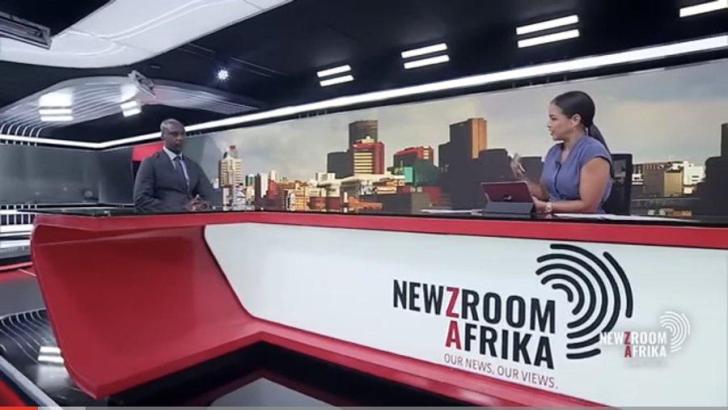Over the past 22 years since sanctions were imposed on Zimbabwe, western governments have invested billions of dollars into South African white owned media, with the aim of discrediting Zanu-PF.
This was intended to discourage people from voting for the party or provoking unrest in the country, in hopes of reversing land, mineral and economic reforms that could influence black South Africans to follow suit.
To achieve this, they gave platforms to anti-Zimbabwean voices like Ibbo Mandaza, Hopewell Chin’ono, Fadzai Mahere, Dewa, Chamisa, Biti and others, alongside B-grade presenters, to create an illusion that Zimbabwe’s problem was merely governmental mismanagement, while dismissing the impact of sanctions on the country.
Despite these efforts, Zanu-PF has won elections with over 60% support in the last three elections, as black Zimbabweans appreciate the education, land, mining rights, economic control and factors of production they gained.
On a global level, Zimbabwe has moved from isolation to garnering support from the UN, AU, SADC and other international bodies that are advocating for the removal of illegal sanctions on the country.
Zimbabwean citizens are even holding the US President accountable for these sanctions in South African courts, prompting Biden to lawyer-up and seek immunity from DIRCO. How many Africans can achieve that?
Investors have come forward, constructing Africa’s largest steel plant in Zimbabwe; BlackRock has invested in the Caladonia gold mine due to the attractiveness of the country’s #GoldRush and agricultural records are being broken.
This success is resulting in the emergence of billionaire black bankers, miners, industrialists and telecom moguls, all under black leadership in a black-owned economy.
As Zimbabwe rises, South African media has retreated into a larger of fear of a handful of pro-Zimbabwean voices that could [through one] interview, effectively dismantle the apartheid establishment responsible for high levels of murder among South Africans.
Even without mainstream media, Zimbabwean Arikana Chihombori, the former AU Ambassador, has managed to educate former French colonies about their continued occupation and need for liberation, sparking revolutions across Francophone Africa.
Similarly, voices like mine have influenced politicians and young Africans on topics such as GMOs, neo-colonialism, sanctions and the banking dictatorship, due to our authenticity and honesty. Consequently, Africa is undergoing change based on our words.
But, despite the billions invested in South African media, not a single SA media personality has managed to shape their own country or influence Africa with anything meaningful expect dancing, singing and sexual deviance.
This disparity can be traced back to the mediocrity stemming from South Africa’s infamous 30% matriculation pass rate, which has left media figures to be oppressors’ tools.
In contrast, Zimbabwean intellectuals illustrate how the country’s education system cultivates individuals capable of changing the world, causing South African media to fear our voices.
Even with figures like Sophie Mokoena and Peter Ndoro, who have received significant amounts from the CIA to propagate false narratives about Zimbabwe, South African media has failed to bring about regime change in Zimbabwe.
While they sought to censor us, Zimbabwean ideology thrived on social media, strengthening the revolutionary mindset among the youth who continue to support ZANU PF. This influence is extending to woke young South Africans who are turning away from local mainstream media mind-kontrol.
It’s astonishing that a multi-billion dollar media industry can be intimidated by just a few Zimbabwean voices. This raises questions about the effectiveness of people in South African media and, more crucially, the credibility of the neo-liberal South African narrative, which struggles to withstand scrutiny.
So now, with the video below, let’s recap on why the narrative on Zimbabwean elections, lacks enough voices of astute pro-Zimbabweans who can articulate issues so clearly like this?
Why is SA media so intimidated by those who can tell the alternative story? Why aren’t they confident to defend their lies from people who know their story?
Source Byo24News








